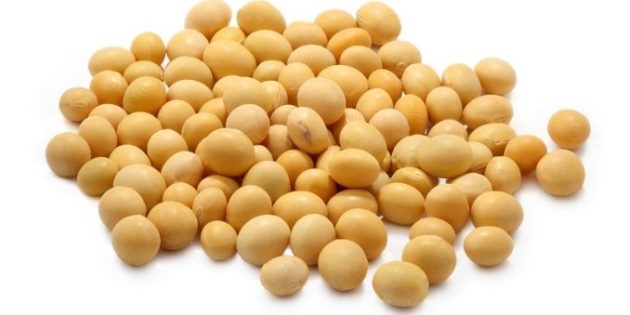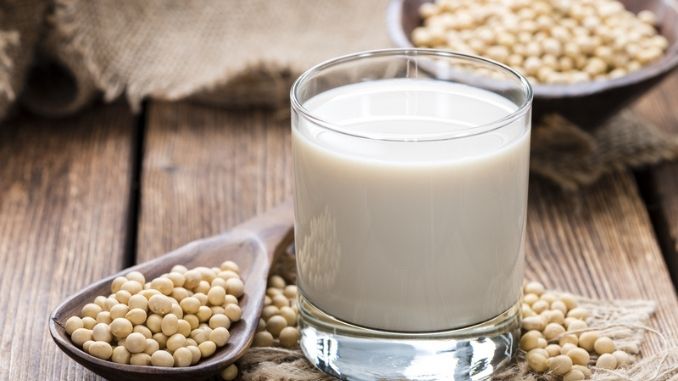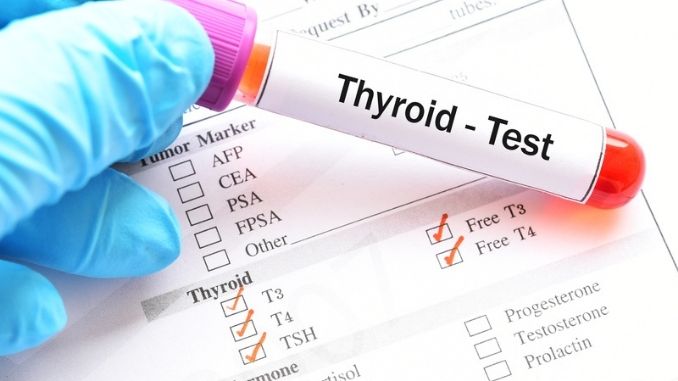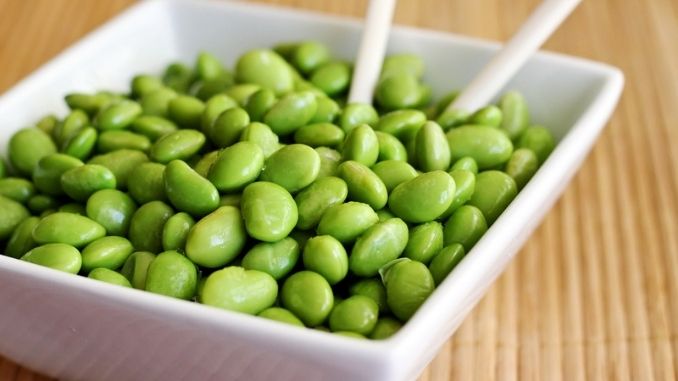Food is essential for human survival. And, for many people in the world, there is a wide array of foods to choose from, one of which is soy. This plant-based protein is viral amongst vegetarians and vegans due to its versatility. For example, we can process it into milk and meat substitutes as a good source of “high-quality complete protein. ” Soy products come mainly from soybeans, a pea family of vegetables that have been a staple in Asian cuisine for a long time. Evidence has shown that soy foods can provide endless health benefits, such as reducing the risk of cardiovascular disease and some cancers, helping alleviate menopausal symptoms, improving skin health, improving bone health, and having a positive effect on renal function. Conversely, there have been persistent concerns over soy’s impact on the thyroid gland, especially for those with existing thyroid problems.
What is the Thyroid?
The human body has glands that create and release hormones to help regulate many bodily functions. The thyroid produces hormones that control many vital roles inside the human body.
The thyroid gland is a butterfly-shaped organ located at the base of the neck. Its primary function is to release hormones that regulate metabolism, which is the body’s ability to use energy. This affects both weight loss and weight gain. The thyroid also produces hormones that regulate vital bodily functions, including breathing, body temperature, menstrual cycles, heart rate, cholesterol levels, muscle strength, the central and peripheral nervous systems, and many more. The thyroid gland’s optimal functioning relies on an adequate supply of iodine in the diet.
The two thyroid hormones are thyroxine, T4 (inactive prohormone), triiodothyronine, or T3 (active hormone). Always balance thyroxine (T3) and triiodothyronine (T4) – not too low or too high. The hypothalamus and pituitary glands in the brain are responsible for maintaining the levels of T3 and T4. However, when the thyroid gland produces a hormone imbalance, it will result in either Hyperthyroidism – too much thyroid hormone, or Hypothyroidism – too little thyroid hormone.
Thyroid disease is prevalent. About 20 million people in the United States are affected, with women being more at risk than men. You may be at a higher risk of developing thyroid disease if you:
- Older than 60
- Female
- Have a family history of thyroid disease
- Taking medications high in iodine
- Have you had past thyroid treatments or thyroid cancer
- Have a medical condition like pernicious anemia, type 1 diabetes, rheumatoid arthritis, primary adrenal insufficiency, Sjogren’s syndrome, or lupus.
Hypothyroidism
Hypothyroidism is when the thyroid does not produce and release enough thyroid hormones into the bloodstream, causing your metabolism to slow down. Low production of thyroid hormones will make you feel tired. You may also gain weight quickly and be unable to tolerate cold temperatures. Hypothyroidism is often accompanied by the enlargement of the thyroid gland, known as a goiter. Hypothyroidism affects 1-2% of people worldwide and is more common in women.
Hyperthyroidism
Abnormally high thyroid hormone production characterizes hyperthyroidism, commonly called overactive thyroid. It speeds up the body’s ability to burn calories. It can lead to a rapid heart rate, noticeable weight loss, muscle weakness, increased appetite, intolerance to heat, excessive sweating, and anxiety. Doctors can treat hyperthyroidism with antithyroid drugs, radioactive iodine, beta-blockers, and surgery. As with Hypothyroidism, this condition is more likely to be seen in women, with around 1.2% of the US population affected. If left untreated, Hyperthyroidism can be severe but is curable if diagnosed and treated early.
Hypothyroidism VS Hyperthyroidism:
| CONDITION | HYPOTHYROIDISM | HYPERTHYROIDISM |
| Thyroid production | Below normal | Above normal |
| Metabolism | Slow | Fast |
| Body mass | Weight gain | Weight loss |
| Energy level | Always tired | Overactive |
| Mood | Depressed | Anxious |
Best Steps for Thyroid Health
Certain nutrients can help maintain the optimal health of the thyroid:
Iodine: An essential mineral for the production of thyroid hormone.
Selenium: Helps activate thyroid hormones so the body can use them. It also has antioxidant properties that help protect the thyroid gland from damage caused by free radicals.
Zinc: This mineral also helps the activation of thyroid hormones.
Do note that Iodine and Selenium supplementation are generally discouraged unless your healthcare provider advises.
Goitrogens are compounds known to interfere with the normal function of the thyroid. Some nutrients may be harmful to those with Hypothyroidism, such as soy foods like tofu, tempeh, and edamame. Also, foods containing goitrogens, such as cabbage, broccoli, kale, cauliflower, spinach, sweet potatoes, cassava, peaches, strawberries, and some nuts and seeds like millet, peanuts, and pine nuts should be limited.
Thyroid problems, specifically Hypothyroidism, can be tricky to manage, and what you eat can interfere with your treatment. Some nutrients heavily influence the function of the thyroid gland, and certain foods can inhibit your body’s ability to absorb the replacement hormones you might take as part of your thyroid treatment. Since you’re in charge of your plate, you can decide which thyroid-friendly foods to choose.
People should consume soy in moderation. There’s long been concern over the potential adverse effects that certain compounds in soy, called isoflavones, may have on the thyroid. Some researchers believe that too much soy may increase a person’s risk of thyroid problems. However, a study published in March 2019 in Scientific Reports found that soy has no effect on thyroid hormones and very modestly raises thyroid-stimulating hormone levels. There’s no evidence that people with thyroid conditions should avoid soy altogether.
Soy and the Thyroid
It’s best to review iodine’s role in essential thyroid gland function to understand how soy directly affects the thyroid Commonly found in seawater, dairy, grains, and fortified in salts, iodine is a vital trace mineral. Iodine plays a significant role in thyroid health. The thyroid uses iodine to produce thyroid hormones.
Soy contains high concentrations of compounds, known as isoflavones, that are said to interfere with the use of iodine in the thyroid and inhibit thyroid enzymes necessary for making thyroid hormones. Without iodine, the production of thyroid hormones might decrease, and the “low” or underproduction of thyroid hormone results in Hypothyroidism. Soy also interferes with the radioactive iodine uptake for the treatment of Hyperthyroidism.
People have long debated whether soy foods are detrimental to thyroid health. It is confusing because studies have produced conflicting results, and these contradictory results might be affected by different variables. Overall, researchers suggest that soy intake does not appear to adversely affect thyroid hormone production, although further studies are still needed to support these claims.
Specific dietary guidelines for Hypothyroidism are not established, and there is no need to avoid many foods. Although there are persistent concerns about soy’s effects on thyroid health, soy foods are still considered part of a balanced diet, and adults with thyroid conditions can still consume soy foods without detrimental effects. However, you should usually take thyroid treatments on an empty stomach, and consume soy products in moderation and cooked.
There is no clear guideline of how much soy is safe for thyroid function, so to be safe, experts suggest eating soy sparingly if you are at risk of thyroid disease or already have thyroid problems. Since it has been shown to inhibit the absorption of synthetic thyroid hormone replacement medication, if consuming soy (sparingly), do so at least 3 hours before or 1 hour after taking thyroid medication.
A hormonal imbalance can be miserable. Learn the best strategies for balancing your hormones safely and naturally here.













